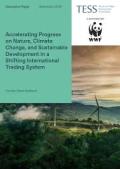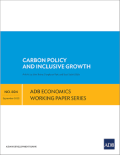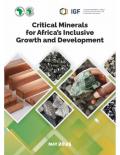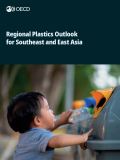
This paper explores the foundations of a trade agenda that puts nature and people at the centre and supports forward-looking strategic dialogue.

This study analyzes the demand and supply of green skills across Amman, Irbid, Mafraq and Zarqa, focusing on current requirements, future trends and the capabilities needed for the green transition.

This paper shows that carbon pricing reduces emissions, but imposes significant macroeconomic costs across 48 countries from 1989 to 2024.

This report analyses the critical minerals in Africa, exploring industrialisation, value-addition and governance frameworks.

This report provides a roadmap with analysis and policy guidance in Asian nations to reduce leakage and build a circular economy.
